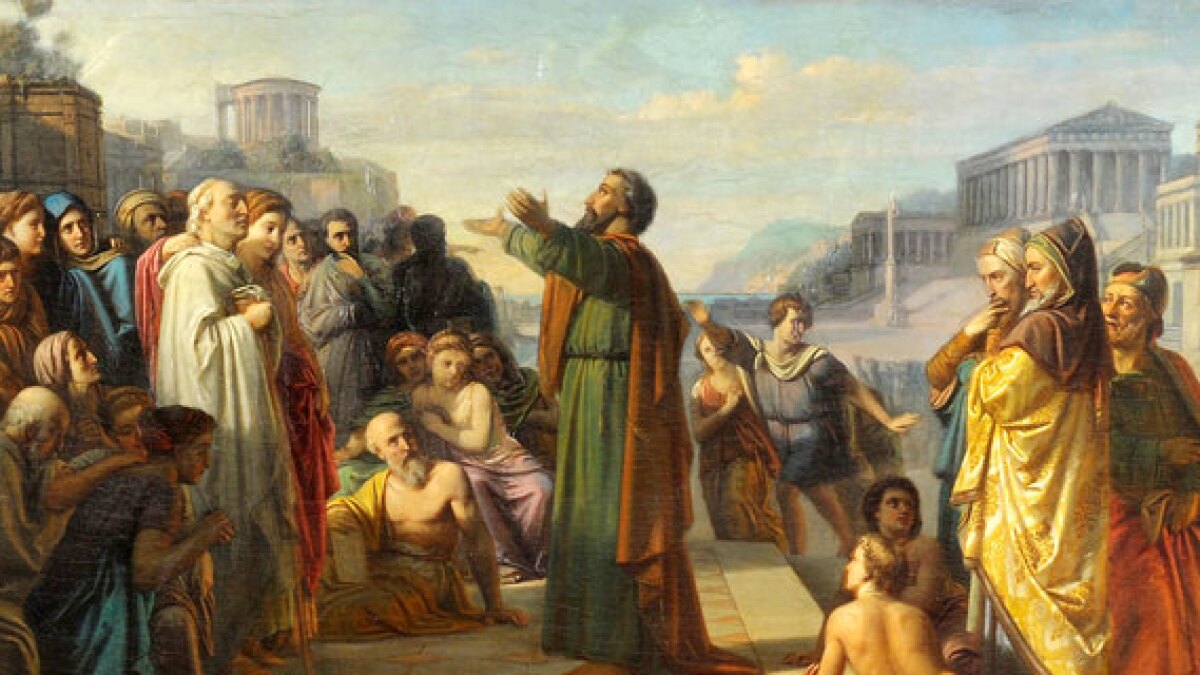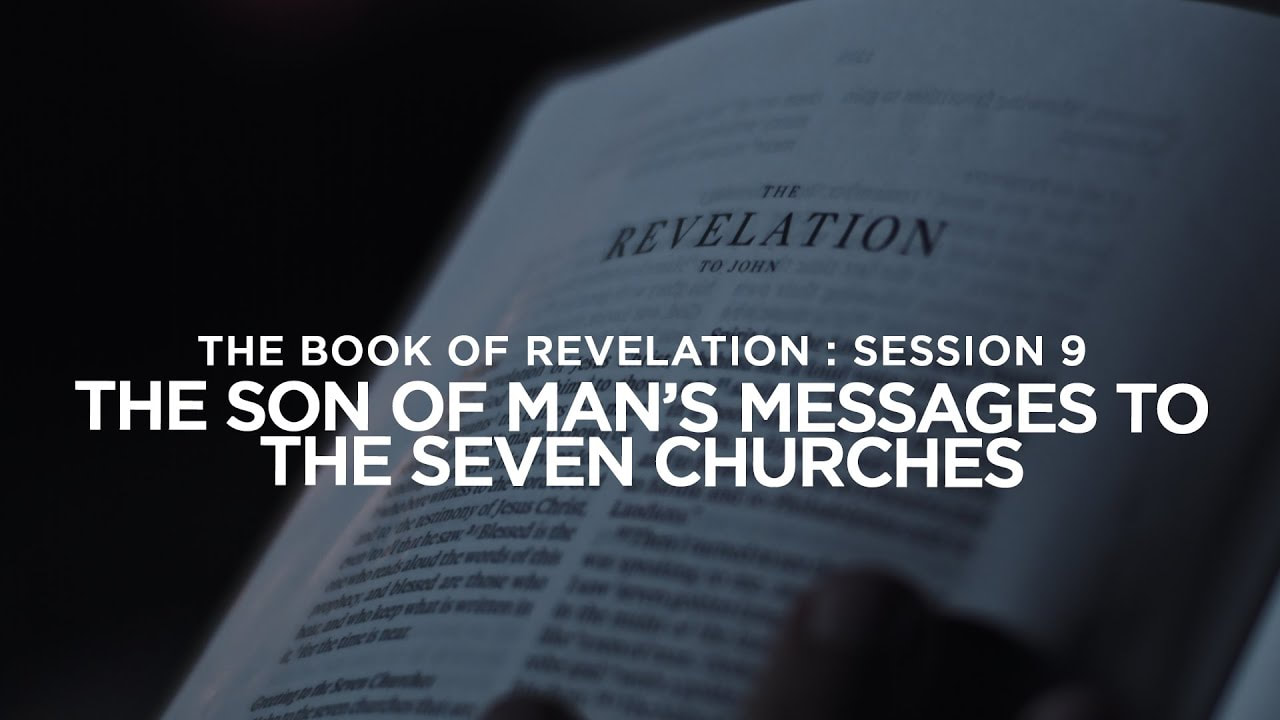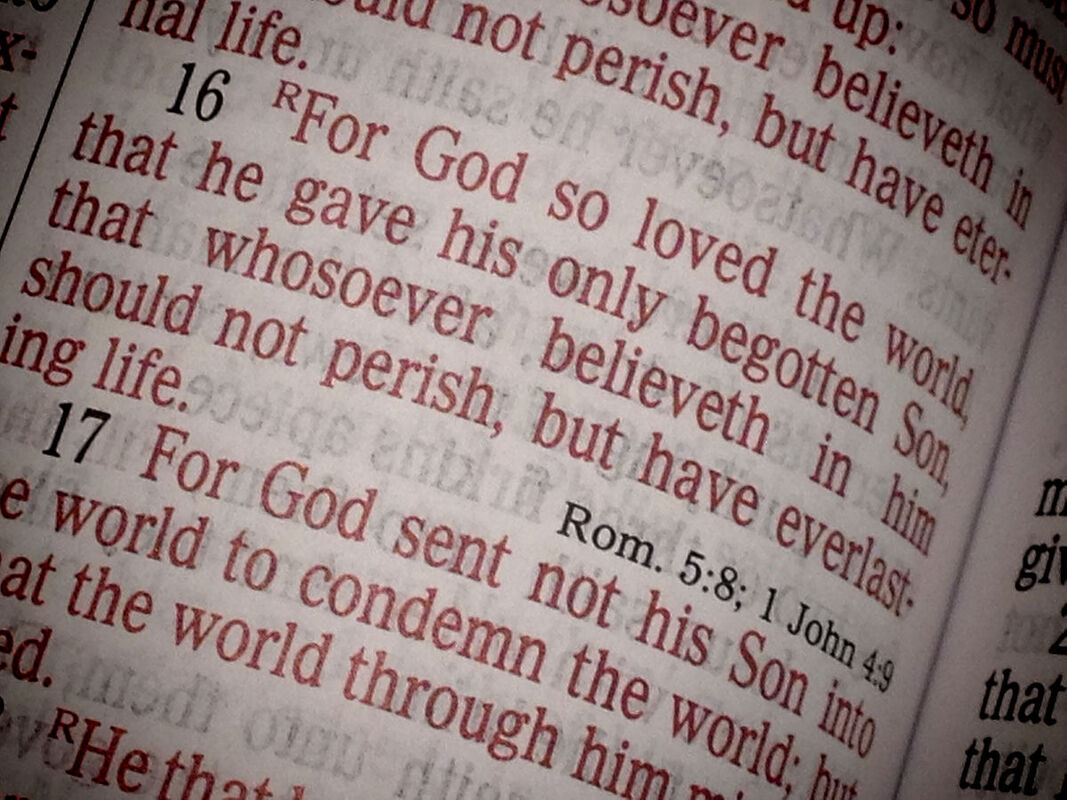in
Paul’s Letter to the Galatians.
The process of sanctification, however,
is what Paul describes in chapter 5 as the
outworking of
the Holy Spirit in the believer’s life.
One of the Holy Spirit’s functions in the believer’s life is to cultivate Christian character, to transform us more and more into the likeness of Christ. This is sanctification, and this is foundational to the teaching of Galatians 5. Here are five things we need to know and teach about sanctification:
1. Sanctification is the work of God.
All our efforts toward holiness are useless apart from
(1) the work of Christ on the cross (Heb. 10:10) and
(2) the work of God’s Spirit in us.
Paul highlighted the Holy Spirit’s role with repetition of the phrase
“by the Spirit”
in Galatians 5:16,18,25. He used the phrase
“sanctified by the Holy Spirit”
in Roman 15:16, and in Romans 8:13 he said it is
"by the Spirit” that we are able to “put to death the deeds of the body.”
2. Sanctification involves our cooperation.
Take note of the imperatives in Galatians 5: “walk by the Spirit” (v. 16), “live by the Spirit” (v. 25), and “keep in step with the Spirit” (v. 25).
Whereas justification is entirely God’s work, sanctification involves our cooperation with God. Christ has delivered us from sin’s reign, but the responsibility for resisting sin is ours. God has given us His Spirit, but the responsibility for walking by the Spirit is ours. “Pursue … sanctification” urged the writer of Hebrews (Heb. 12:14, NASB; see also 2 Cor. 7:1).
3. Sanctification is on ongoing process.
Whereas justification is once and for all, sanctification is a continuous process whereby we grow in holiness. The Greek verb translated “walk by the spirit” in verse 16 translates the Greek verb peripateo, which literally means “to go about” or “to walk around.” It’s the same word Jesus used of the paralytic, “get up, take your mat, and walk” (Mark 2:9). The word walk also can be used to mean a certain walk of life or conduct. Paul used a tense of the verb that reflects continuous, on-going activity.
The word walk reminds us that sanctification doesn’t roll effortlessly
down a superhighway;
it treks resolutely up a more arduous path, steadily progressing
toward the goal but never arriving until that
day we “see him as he is”
(1 John 3:2).
4. The goal and measure of sanctification is Christlikeness.
God’s purpose in our sanctification is to transform us more and more into the likeness of Christ (Rom. 8:29). Refuse to be seduced into defining spiritual maturity in terms of religious activities (sanctification-by-checklist). The 8-point record system offering envelope I grew up using in church is not a gauge of spiritual maturity. (On the weekly envelope was a checklist: Sunday School attendance, Bible brought, lesson studied, giving, worship attendance, daily Bible reading, number of visits, and number of other contacts made. Check off the items on the list and you’re good for another week!) On the contrary, Christ-like character is the measuring stick of growth in sanctification.
5. The primary instrument of sanctification is the Word of God.
Jesus’ prayer for His disciples, “Sanctify them by the truth; your word is truth” (John 17:17), instructs us that God sanctifies us by His Word. Paul understood that God’s Word trains us in righteousness so that we may “be complete” (2 Tim 3:16-17). Let us drink deeply, then, from the Scriptures, for by them God will transform us more and more into the likeness of Christ.
(See also Ps. 119:11; Acts 20:32; 1 Pet. 2:2.)
Remember, “this is God’s will, your sanctification”
(1 Thess. 4:3).
In selecting a team, the criteria used often include a person’s abilities, status, and history of success. However, the world’s measure of success is different from God’s. God does not require intelligence, ability, power, or status to become a believer. Those who come to Christ are on His “team” by grace through faith (Ephesians 2:8–9). In fact, God chooses the foolish things to confound the wise, or, as rendered in the NIV, He “chose the foolish things of the world to shame the wise” (1 Corinthians 1:27).
Previously, Paul reminded the Corinthian believers that the message of the cross unites them (1 Corinthians 1:10–17). Trusting in Jesus’ death and resurrection for the forgiveness of sins brings all believers into the same family, the same team. No other external qualifier—status, wealth, intellect, nobility, fame, or anything else—defines us. Everything else becomes secondary to our status in Christ: “There is neither Jew nor Gentile, neither slave nor free, nor is there male and female, for you are all one in Christ Jesus” (Galatians 3:28). “The message of the cross is foolishness to those who are perishing” (1 Corinthians 1:18), but God, in His infinite wisdom, chooses the foolish things to confound the wise.
While the message of the gospel appears foolish to the world, “to us who are being saved it is the power of God” (1 Corinthians 1:18). The unbelieving world sees Christ’s death on the cross as foolish, seeing it as a sign of weakness or a proof of criminality; however, this is where God chooses the foolish things to confound the wise. It is through the death of Christ that we have forgiveness of sin and life eternal. This gospel message is simple enough that a child can understand it. In Matthew 11:25, Jesus praises the Father because He has “hidden these things from the wise and learned, and revealed them to little children.” God’s truth is not foolish; it is of infinite value and brings life for all who believe.
God’s plan of salvation is so simple, so surprising, that the learned of this world often miss it. Salvation does not come through mankind’s ability to reason; we cannot think our way to heaven: “Where does this leave the philosophers, the scholars, and the world’s brilliant debaters? God has made the wisdom of this world look foolish. Since God in his wisdom saw to it that the world would never know him through human wisdom, he has used our foolish preaching to save those who believe” (1 Corinthians 1:20–21, NLT).
Not only does the message of God seem foolish to the unbelieving world, but so do the people of God: “Consider your calling, brothers: not many of you were wise according to worldly standards, not many were powerful, not many were of noble birth. But God chose what is foolish in the world to shame the wise” (1 Corinthians 1:2627, ESV).
Scripture exhorts us not to be wise in our own eyes (Proverbs 3:7). Rather, we should humbly submit ourselves to the Lord and His truth. We may appear foolish to the world, but this is the path to true wisdom (Proverbs 1:7; 9:10). “God has selected [for His purpose] the foolish things of the world to shame the wise [revealing their ignorance]” (1 Corinthians 1:27, AMP). God uses foolish things and foolish people to confound the wise—at least those who think they are wise.
“The wisdom of this world is foolishness in God’s sight. The Lord knows that the thoughts of the wise are futile” (1 Corinthians 3:19–20). There is a difference between worldly wisdom and godly wisdom (James 3:13–17). Worldly wisdom is characterized by pleasing oneself or following what one thinks is best in his own estimation. Worldly wisdom is not at all concerned about honoring God. To the world, believers are foolish and weak. Yet God indeed uses the foolish things of the world to confound the wise and the weak things to shame the strong. A person is not saved by following worldly wisdom but by trusting in what seems foolish to the world (1 Corinthians 1:20–21).
God uses the foolish things to confound the wise; i.e., He uses what the world deems foolish to show that the so-called wisdom of the world is not all it is cracked up to be. God’s wisdom through salvation is available to all: “For God so loved the world that he gave his one and only Son, that whoever believes in him shall not perish but have eternal life” (John 3:16). By God’s grace, all who humble themselves and trust in Him will receive the wisdom that lasts for all eternity.
All that God deemed essential knowledge for His children is found in His Word—the Bible. Beyond that, all truth is God’s. God has, however, revealed His truth to all humans in the things created (Romans 1:20) called general revelation, and in His written Word called special revelation (1 Corinthians 2:6–10).
There is a difference between “earthly wisdom” and the “wisdom that comes from above” (James 3:14–18). To tap into God’s wisdom, we must, first of all, desire it and ask God for it. “If any of you lacks wisdom, you should ask God, who gives generously to all without finding fault, and it will be given to you” (James 1:5). The next verse specifies that we must “ask in faith, nothing wavering” (verse 6).
We acknowledge that true wisdom comes from God and that Jesus Christ is the embodiment of that wisdom (1 Corinthians 1:30). To trust in Christ and yield to His Holy Spirit is to walk in wisdom; as Christians, “we have the mind of Christ” (1 Corinthians 2:16).
Love of God, the greatest commandment, is also required. “As it is written: ‘What no eye has seen, what no ear has heard, and what no human mind has conceived’—the things God has prepared for those who love him—these are the things God has revealed to us by his Spirit. The Spirit searches all things, even the deep things of God” (1 Corinthians 2:9–10; cf. Isaiah 64:4).
To have knowledge is to have understanding or information about something. To have wisdom is to have the ability to apply knowledge to everyday life. It is in the reading and understanding of God’s Word that we obtain knowledge, and meditating upon that knowledge brings wisdom. The longest chapter in the Bible is Psalm 119, which is all about gaining understanding and wisdom from God’s Word. Just a few verses are “Oh, how I love your law! I meditate on it all day long” (verse 97).
“Your word is a lamp for my feet, a light on my path”
(verse 105).
“I will meditate on your precepts, and have respect to your ways. I will delight myself in your statutes: I will not forget your word” (verses 15–16). The word meditate is used five times in Psalm 119 and in various forms another fifteen times in the book of Psalms. Meditation is required to fully consider how to apply God’s Word in everyday life.
The book of Proverbs is full of wisdom. In that book, Wisdom calls for a hearing: “How long will you who are simple love your simple ways? How long will mockers delight in mockery and fools hate knowledge? Repent at my rebuke! Then I will pour out my thoughts to you, I will make known to you my teachings” (Proverbs 1:22–23). The promise of Wisdom is that those who desire God’s truth can have it, but it requires giving up the world’s foolish mockery of the truth. “The fear of the LORD is the beginning of knowledge, but fools despise wisdom and instruction” (Proverbs 1:7).
To have the “fear of the LORD” is to have an awed respect of who God is and a reverential trust in His Word and His character, and to live accordingly. When one is walking in the fear of the Lord, he or she is relying on God’s wisdom in the matters of everyday life and making whatever changes need to be made in light of God’s Word.
Those who have God’s wisdom will show it in how they live: “Who is wise and understanding among you? Let them show it by their good life, by deeds done in the humility that comes from wisdom” (James 3:13).
In summary, to tap into God’s wisdom, we must diligently study God’s Word (2 Timothy 2:15), meditate on the Word, pray for wisdom, seek it with all our hearts, and walk in the Spirit. God desires to give His wisdom to His children. Are we willing to be led by that wisdom?
The day of Christ is a prophetic event specifically referenced three times in the New Testament; the apostle Paul speaks of “the day of Christ,” “the day of Jesus Christ,” and “the day of our Lord Jesus Christ.” Other New Testament passages may allude to the day of Christ, but the use of this phraseology is unique to Paul’s writings. Let us examine these three passages within their proper scriptural context. The first is Philippians 1:3–6:
I thank my God in all my remembrance of you, always in every prayer of mine for you all making my prayer with joy, because of your partnership in the gospel from the first day until now. And I am sure of this, that he who began a good work in you will bring it to completion at the day of Jesus Christ (ESV).
Besides assuring Christian believers of their eternal security, this passage teaches that the day of Christ marks the time when our sanctification will be complete. At long last, we will enjoy sinless perfection and dwell in resurrected, immortal, glorified bodies. In reference to this same bright future, John wrote, “Beloved, we are God’s children now, and what we will be has not yet appeared; but we know that when he appears we shall be like him, because we shall see him as he is” (1 John 3:2, ESV).
The next mention of “the day of Christ” is in Philippians 2:14–16:
Do all things without grumbling or disputing, that you may be blameless and innocent, children of God without blemish in the midst of a crooked and twisted generation, among whom you shine as lights in the world, holding fast to the word of life, so that in the day of Christ I may be proud that I did not run in vain or labor in vain (ESV).
From this passage, we can be assured that the difficulties believers face in a hostile, godless world will pass and that, in the day of Christ, the struggles will end for those who persevere. In another passage, the apostle Paul writes, “And let us not grow weary of doing good, for in due season we will reap, if we do not give up” (Galatians 6:9, ESV).
The third and final of Paul’s references to “the day of Christ” is found in 1 Corinthians 1:4–8:
I give thanks to my God always for you because of the grace of God that was given you in Christ Jesus, that in every way you were enriched in him in all speech and all knowledge—even as the testimony about Christ was confirmed among you—so that you are not lacking in any gift, as you wait for the revealing of our Lord Jesus Christ, who will sustain you to the end, guiltless in the day of our Lord Jesus Christ (ESV).
Again, the apostle Paul assures all believers of their eternal hope, for when the day of Christ comes, they will be counted among the redeemed. This blessed hope is also expressed in our Lord’s words, “And this is the will of him who sent me, that I should lose nothing of all that he has given me, but raise it up on the last day” (John 6:39, ESV).
The day of Christ points to the time when our struggles end and victory over sin and death is no longer a promise, but a glorious reality. We believe the day of Christ begins at the rapture of the church and continues through the millennial reign. The day of Christ is a time of lavish promises fulfilled and decisive victories achieved—a time when believers no longer walk by faith but by sight, for our enemies will be our Lord’s footstool (Psalm 110:1).
The day of Christ is related to but probably distinguished from the day of the Lord. The day of the Lord is a time of judgment in which God pours out His consuming wrath upon a hostile, rebellious, unbelieving world:
Alas for the day!
For the day of the Lord is near,
and as destruction from the Almighty it comes (Joel 1:15, ESV)
Wail, for the day of the Lord is near;
as destruction from the Almighty it will come! (Isaiah 13:6)
Woe to you who desire the day of the Lord!
Why would you have the day of the Lord?
It is darkness, and not light (Amos 5:18, ESV)
For the day of the Lord is near upon all the nations.
As you have done, it shall be done to you;
your deeds shall return on your own head (Obadiah 1:15, ESV)
The day of the Lord is a time of worldwide judgment;
the day of Christ has to do with
believers meeting Christ and receiving their
heavenly inheritance.
Thankfully, God’s people will not face the unleashing of God’s righteous fury when the day of the Lord comes (I Thessalonians 5:9). The day of the Lord is reserved for unrepentant sinners who refuse God’s mercy. The haughty and proud rebels who snub His mercy must face His judgment. By contrast, the day of Christ is a time of hope and promise and, indeed, a day of celebration. May we join King David in singing,
“I waited patiently for the Lord;
he inclined to me and heard my cry.
He drew me up from the pit of destruction,
out of the miry bog,
and set my feet upon a rock,
making my steps secure.
He put a new song in my mouth,
a song of praise to our God.
Many will see and fear,
and put their trust in the Lord”
(Psalm 40:1–3, ESV).










 RSS Feed
RSS Feed
























































